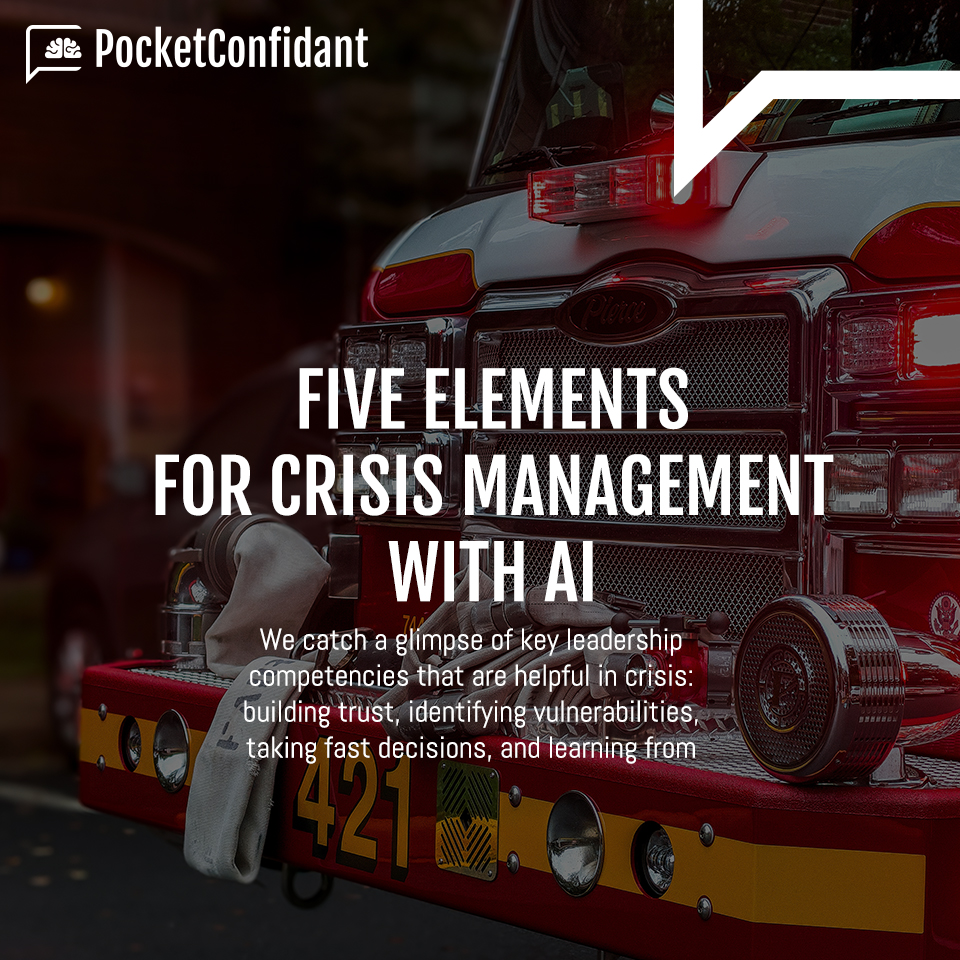
It seems like 2020 has just started and it has already collected a series of crisis events: coronavirus outbreak, a surge in unemployment and a tremendous drop in the price of oil.
A crisis is a sequence of unexpected events that are suddenly disrupting the status quo for an individual, a whole organization, a country or a society. This disruption generally arises suddenly and triggers fight-or-flight response accompanied by the feelings of fear which threatens individuals, pushing them to act irrationally. Often it is not the unexpected event per se that brings most of the damage, but the cascade of reactive human behaviors, or “reactions”. In the absence of timely adequate internal and external communications the following stages occur:
- Lack of prior experience breaks down existing operational responses (this is the nature of crisis);
- Not knowing what’s happening, people quickly become confused, angry, and react negatively;
- Management is perceived as impotent, at best, and criminally negligent, at worst;
- Recovery times are extended, often dramatically;
- The impact on the financial, environmental, and societal bottom line becomes more severe.
Political and organizational leadership often does not understand that in times of crisis, people can’t think. It’s rationality that we lack, and a collective lack of rationality makes things even worse. To return to stability clear and simple instructions should be delivered just-in-time. This is the role of leadership. So, where could AI help? Could AI bring leadership value?
Let’s look at key leadership competencies that are helpful in such periods: building trust, identifying vulnerabilities, taking fast decisions, and learning from crises to make change happen.
Building trust
By developing trust, we rely on the character, ability, strength, or truth of someone or something, we put good faith on someone else to do the right thing. Have you ever managed people who didn’t trust one another? A community without trust isn’t really a community: it’s a group of individuals making little progress: people don’t share information; they might battle over responsibilities and they frequently do not cooperate with one another. However, when trust is in place, each individual in the community becomes stronger, because he or she is part of an effective and cohesive group dynamic. When people trust each other, the group can achieve truly meaningful goals.
Identifying vulnerabilities
Environmental, societal and cybersecurity incidents have been on the rise for the past few years as organizations and communities became more complex and entangled. While complexities grow, the risk of failures will only increase. It is necessary to keep continuous attention on your organization’s security posture and monitor any vulnerabilities before circumstances can get a chance to exploit them. The key actions are: establish a full list of potential vulnerabilities, take special care to identify anything unknown about your organization or an ecosystem, assess the potential risks.
Taking decisions fast
Our lives are defined by our ability to make decisions. Our careers, relationships, health—anything and everything about our present boils down to the decisions we’ve made in the past and we’re making now in the present. We may have access to information, multiple options, and generally have everything going for us, but timing is what matters the most. Too much time and the benefits from the alternative solutions are delayed. Analysis paralysis, fears of uncertainty and information bias can delay taking decisions timely. So how can we get rid of the mental clutter and the anxiety to make better decisions faster? These hacks can help: sticking to your mission, setting a time limit for decisions, avoiding decision fatigue, and controlling only what you can control.
Learning from crisis to make change happen
While it may be too soon to talk about recovery, we always return to some sort of business-as-usual. So even during the crisis, it is the right time to be capturing the lessons learned from it for the next time we are faced with unprecedented events. Multiple studies deal with the relationship between organizational flexibility, crisis response, and learning. Experience can shape crisis responses in two ways: as a way of repeating former routines or as a precondition for improvisation. Barriers to learning can themselves serve to generate the conditions which will allow an incident to escalate into the next crisis.
The upside to any crisis is that we have the opportunity to develop new habits and perspectives that will last well beyond when life goes back to normal.
Diane Belcher, HBR Blogs
When we talk about AI, here are the five elements that can be put in place for effective crisis management.
- Anomaly detection– using algorithms to search for anomalies, rare items, events or observations which raise suspicions by differing significantly from the majority of the data.
- Preparation/prevention– well-designed failure models should be recommended automatically, so that safety “plan B” is thought over, means of communication are established, and clear instructions are provided for the public to avoid panic.
- Containment and damage control– AI should be used to identify the exact sources of crisis as well as to predict the local impact of disruption and its cascading effects. The most vulnerable and critical populations should be protected.
- Recovery– AI should be used to effectively redistribute and reallocate the resources needed for recovery, helping the organizations and society to adapt to new circumstances.
- Learning– AI should evaluate and self-adjust the recovery process, comparing outcomes to the results of its predictive model during and after the crisis.
Action item and outcomes:
Share what you are doing in this time of crisis and what you are learning in comments to this post, connect with others and hear from colleagues about what is working for them. What role is AI playing in your strategy?
If you need a safe space to rationalize your thinking, get started now and reflect with PocketConfidant questioning technology.